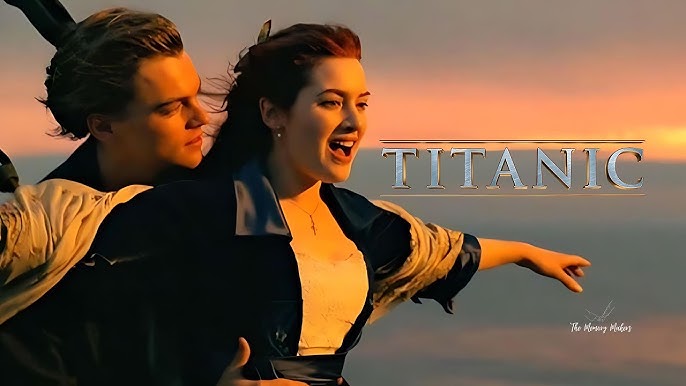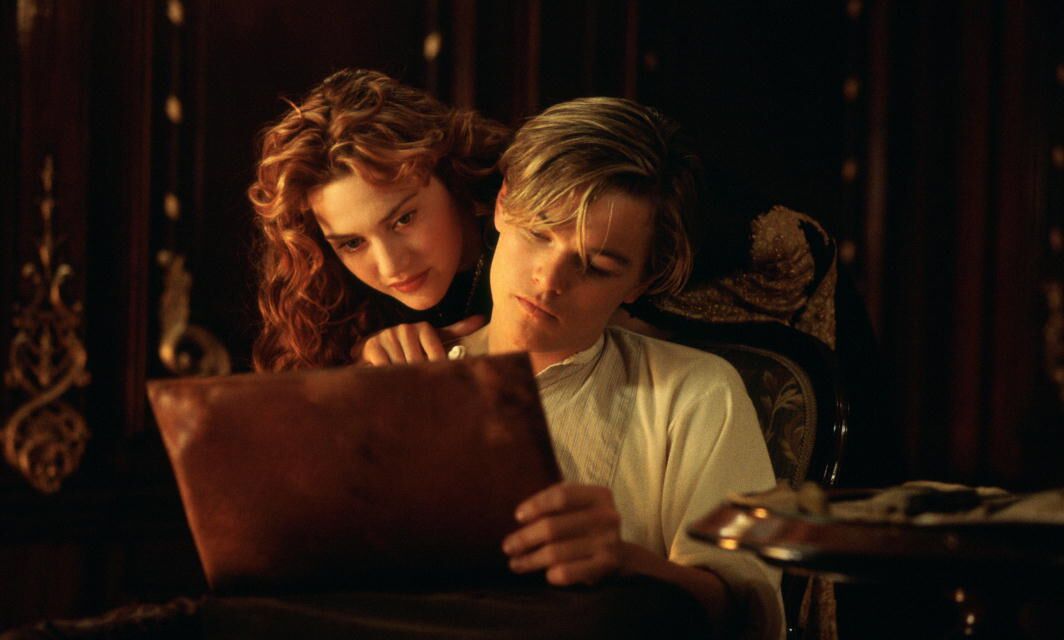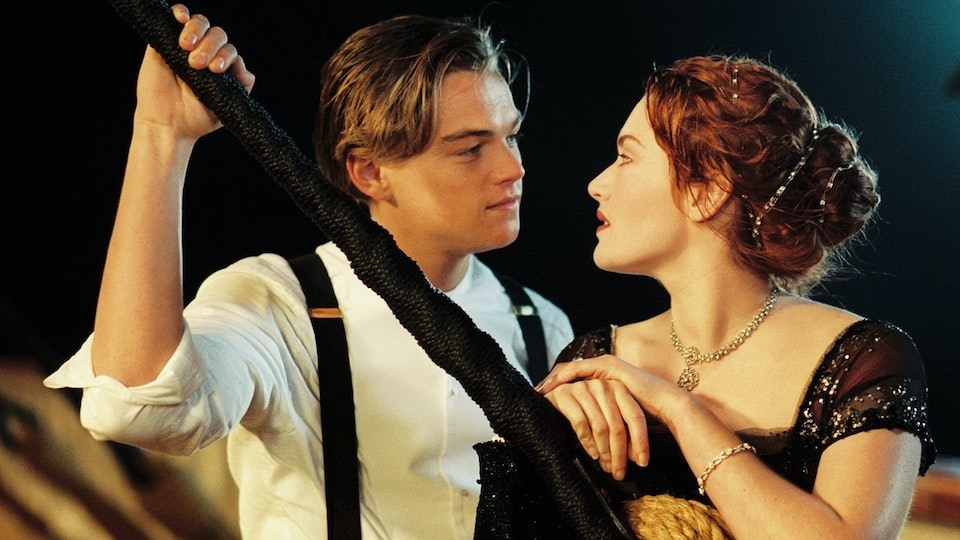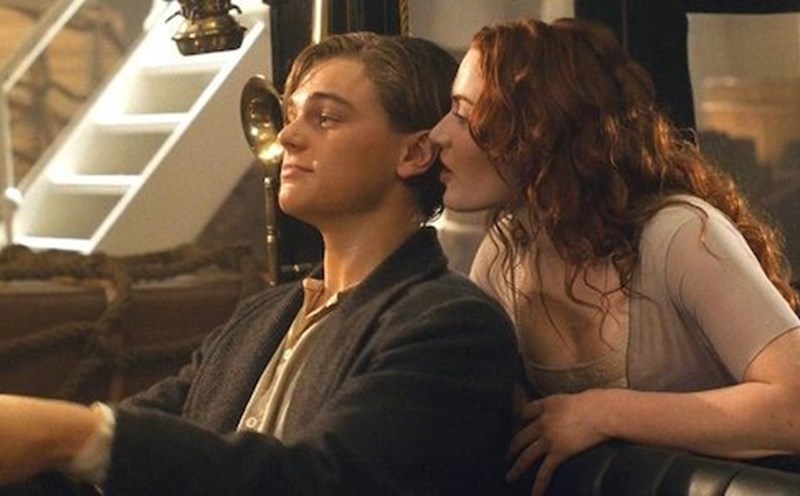🎬 Titanic (1997)

🎬 Titanic (1997): A Timeless Epic of Love and Tragedy
Titanic (1997), directed by James Cameron, is a sweeping romantic drama set against the backdrop of the infamous sinking of the RMS Titanic. One of the most iconic films in cinematic history, Titanic blends historical events with a fictional love story, bringing the tragedy to life with breathtaking visuals and unforgettable performances. The film captivated audiences worldwide with its emotional depth, stunning effects, and its portrayal of one of the greatest maritime disasters in history.

Set in 1912, the film begins with the exploration of the Titanic wreck by treasure hunter Brock Lovett (Bill Paxton) and his crew. They uncover a drawing of a woman wearing a priceless necklace, “The Heart of the Ocean,” which leads to the involvement of Rose Dawson Calvert (Gloria Stuart), an elderly woman who claims to be the young woman in the drawing. As she recounts her story, the film shifts to the past, transporting us to the fateful voyage aboard the RMS Titanic.
In 1912, the story follows a young, free-spirited Rose DeWitt Bukater (Kate Winslet), an aristocratic young woman engaged to the wealthy but controlling Cal Hockley (Billy Zane). Rose feels suffocated by her privileged life and her arranged engagement, unsure of the future ahead of her. Her world changes when she meets Jack Dawson (Leonardo DiCaprio), a penniless artist who won a ticket aboard the Titanic in a poker game. Jack and Rose’s worlds collide as they form an unlikely connection, with Jack’s passion for life and adventure contrasting sharply with Rose’s sense of duty and social obligation.
As the two fall deeply in love, their romance faces numerous obstacles, including the disapproving Cal, who sees Jack as a threat to his social status and his engagement to Rose. The passionate love story plays out against the looming disaster, with the Titanic heading toward its fateful collision with an iceberg. As the ship begins to sink, the true test of Rose and Jack’s love unfolds, as they navigate the chaos and destruction, fighting to survive against all odds.
The sinking of the Titanic is portrayed in harrowing detail, with spectacular special effects and an emotional intensity that makes the audience feel as though they are witnessing the disaster firsthand. The film’s meticulous attention to detail in recreating the ship’s grandeur and the tragedy’s scale is breathtaking. The sinking sequence, particularly the images of the ship splitting in half, remains one of the most unforgettable scenes in cinematic history.
At its heart, Titanic is a story about love and loss, exploring the depths of human emotion against the backdrop of an unthinkable disaster. The love story between Jack and Rose transcends social classes, showing how love can flourish in the face of adversity, even when the world around them is falling apart. The film also delves into themes of fate, class disparity, and the inevitability of death, with the doomed voyage symbolizing the fragility of life.

Kate Winslet and Leonardo DiCaprio deliver exceptional performances that elevate the film’s emotional impact. Winslet portrays Rose with a blend of strength and vulnerability, perfectly capturing the internal conflict of a young woman torn between love and societal expectations. DiCaprio’s portrayal of Jack is charismatic and full of youthful exuberance, making him the ideal romantic lead. Their chemistry is palpable, and their performances are key to the film’s lasting emotional resonance.
The supporting cast, including Billy Zane as the arrogant and controlling Cal, Danny Nucci as the lovable Fabrizio, and Jonathan Hyde as the wealthy J. Bruce Ismay, provides further depth to the film, adding layers of complexity to the narrative. The tension between the characters enriches the story, highlighting the contrasts between the privileged passengers and the working-class travelers aboard the ship.

The film’s cinematography, music, and set design also play crucial roles in making Titanic the unforgettable cinematic experience it is. The sweeping shots of the ship’s majestic interiors, the tragic imagery of the sinking, and the hauntingly beautiful score by James Horner work together to create an emotional and immersive atmosphere. The song “My Heart Will Go On,” performed by Celine Dion, became an anthem of the film, perfectly encapsulating its themes of love, loss, and remembrance.
Titanic received widespread acclaim, both from critics and audiences, and became the highest-grossing film of its time. It won 11 Academy Awards, including Best Picture and Best Director, cementing its place in cinematic history. The film’s success also brought renewed attention to the real-life disaster, sparking a resurgence of interest in the Titanic’s legacy and inspiring numerous documentaries and exhibitions.
Despite its widespread popularity, Titanic is not without its critiques, with some viewers finding its central love story overly sentimental or melodramatic. However, the film’s massive cultural impact and its status as a modern classic cannot be denied. It continues to resonate with audiences worldwide, touching on universal themes of love, loss, and the passage of time.
Ultimately, Titanic is a timeless masterpiece that combines romance, tragedy, and history in a way that few films have achieved. Its exploration of the human spirit in the face of disaster, combined with its unforgettable characters and stunning visuals, makes it a cinematic experience that will endure for generations to come. The story of Jack and Rose, though fictional, continues to capture the hearts of viewers, ensuring that Titanic remains one of the most beloved films in the history of cinema.











